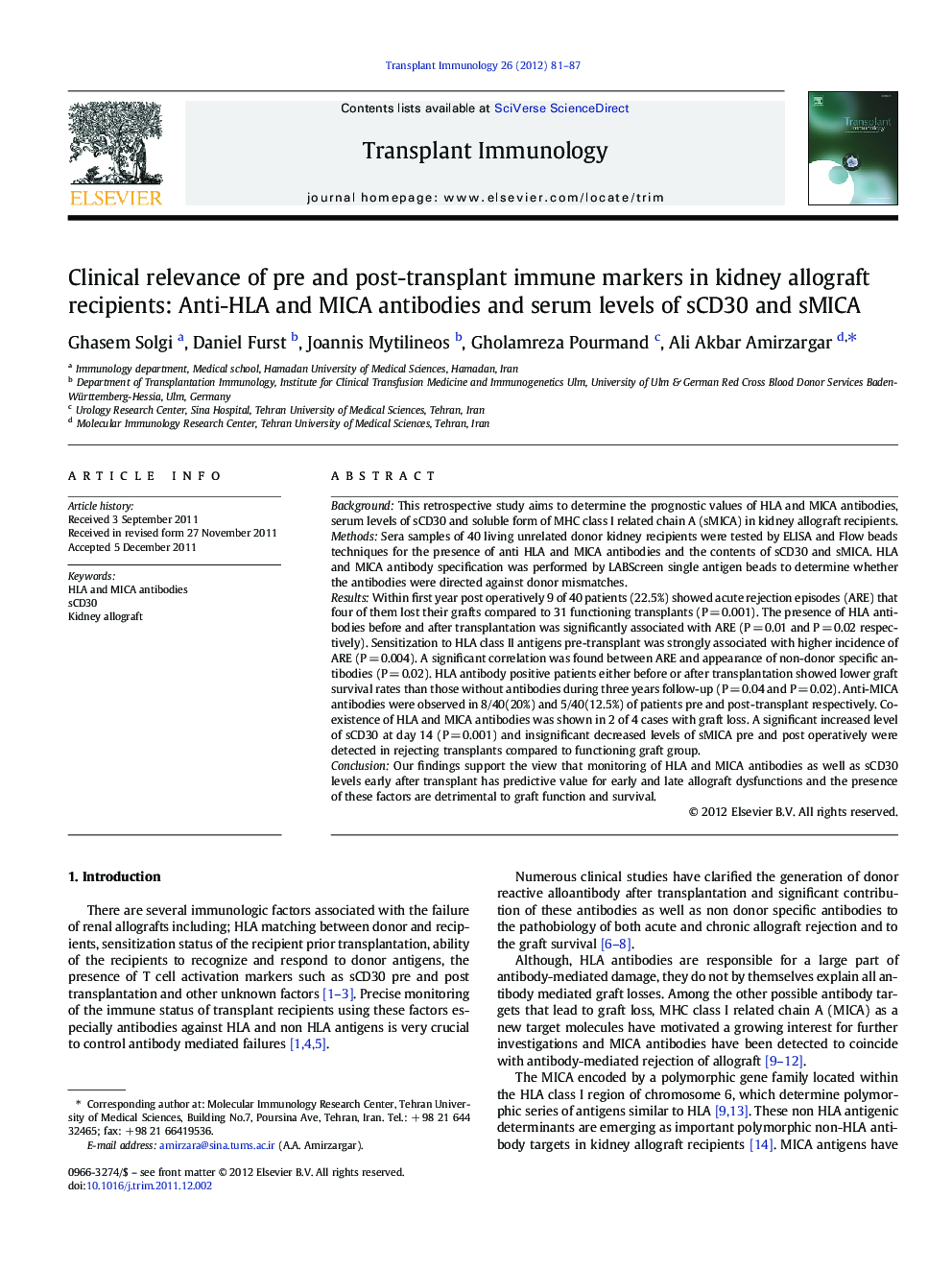| Article ID | Journal | Published Year | Pages | File Type |
|---|---|---|---|---|
| 3392167 | Transplant Immunology | 2012 | 7 Pages |
BackgroundThis retrospective study aims to determine the prognostic values of HLA and MICA antibodies, serum levels of sCD30 and soluble form of MHC class I related chain A (sMICA) in kidney allograft recipients.MethodsSera samples of 40 living unrelated donor kidney recipients were tested by ELISA and Flow beads techniques for the presence of anti HLA and MICA antibodies and the contents of sCD30 and sMICA. HLA and MICA antibody specification was performed by LABScreen single antigen beads to determine whether the antibodies were directed against donor mismatches.ResultsWithin first year post operatively 9 of 40 patients (22.5%) showed acute rejection episodes (ARE) that four of them lost their grafts compared to 31 functioning transplants (P = 0.001). The presence of HLA antibodies before and after transplantation was significantly associated with ARE (P = 0.01 and P = 0.02 respectively). Sensitization to HLA class II antigens pre-transplant was strongly associated with higher incidence of ARE (P = 0.004). A significant correlation was found between ARE and appearance of non-donor specific antibodies (P = 0.02). HLA antibody positive patients either before or after transplantation showed lower graft survival rates than those without antibodies during three years follow-up (P = 0.04 and P = 0.02). Anti-MICA antibodies were observed in 8/40(20%) and 5/40(12.5%) of patients pre and post-transplant respectively. Coexistence of HLA and MICA antibodies was shown in 2 of 4 cases with graft loss. A significant increased level of sCD30 at day 14 (P = 0.001) and insignificant decreased levels of sMICA pre and post operatively were detected in rejecting transplants compared to functioning graft group.ConclusionOur findings support the view that monitoring of HLA and MICA antibodies as well as sCD30 levels early after transplant has predictive value for early and late allograft dysfunctions and the presence of these factors are detrimental to graft function and survival.
► Pre and post-transplant immune monitoring in kidney allograft recipients. ► Pre-transplant sensitization to HLA class II antigens in patients with acute rejection. ► Coexistence of HLA and MICA antibodies in patients with poorer allograft outcomes. ► Higher sCD30 and lower sMICA levels are detrimental to graft function and survival. ► HLA and MICA antibodies and sCD30 are predictive for allograft dysfunctions.
